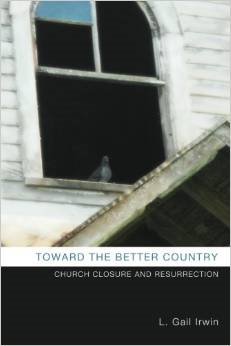 Last week was a tough week. The governor in my state of Wisconsin signed a partial “budget bill” that took away most rights of public workers to bargain collectively. The next phase will be deep cuts in state aid to schools and municipalities for public services and education.
Last week was a tough week. The governor in my state of Wisconsin signed a partial “budget bill” that took away most rights of public workers to bargain collectively. The next phase will be deep cuts in state aid to schools and municipalities for public services and education.
When anger here was at its fevered pitch, an earthquake and tsunami rocked northern Japan, killing thousands of people. We watched the footage of buildings shaking and sludge rolling over the city of Sendai, carrying boats, shipping containers and even buildings in its wake. We all felt that ache in our guts: the world as we know it is shaking beneath us. A new world is breaking over us faster than we can fathom. We can’t breathe in this pace of change.
One clergy person I heard recently said that our small, Midwestern towns are full of people who tend to be quiet about their anger and grief. But the sense of loss incited by the budget debate has surfaced emotions that are normally kept inside for the sake of maintaining peace in our little communities. We are feeling and talking about our anxiety in ways we haven’t in the past.
Anxiety runs on a neural pathway from the sight of a tsunami to that primal part of the brain that feels before it thinks: the amygdala. It’s our animal brain. We need that part of the brain to help us know when danger is near, so we can either fight it or run from it. People are empowered by their anxiety to drive down to Madison and protest something they feel is unjust. They use anxiety to run when an earthquake strikes. And they use it to muster the energy to dig bodies out of the rubble after the earthquake.
But when anxiety becomes chronic, it cripples us. Peter Steinke writes in “Congregational Leadership in Anxious Times”,
If intense and prolonged, anxiety has a strangling effect, depleting people’s energy, disturbing their thinking, and dividing their loyalties.
There need to be people who transcend their own negative emotions and access the higher brain where hope and creativity reside. The rest of us look for these people and yearn to hear a message from them that helps us see beyond our own despair.
Some people turn to their clergy for these messages. I feel so empty when I attend a church at a time like this and the pastor goes ahead with his or her pre-planned “program”, not giving attention to the sorrow enveloping the sanctuary. (Pay attention, clergy!) Some people still rely on their clergy for Good News in hard times.
Some people don’t have a clergy person or church to turn to, and walk the world with free-floating grief they don’t know how to process. These people need you. They need you to think bigger than your opinions, your paranoia, and your political catch-phrases. They need the Good News, spoken through you in genuine ways. It’s okay to admit that you are scared and angry, too. But take the time to center yourself and find the anchors of faith that have grounded you, before you go out and take on the world. Then consider your words, how important they are, how they have the power to build up or destroy.
It is much easier to be fearful and anxious—these emotions are basic to all animals. It takes more discipline to try to be fully human, as Christ was. But I believe one person in a room who is trying to live out their best humanity can influence 100 people who are highly anxious. And guess what—it doesn’t have to be the appointed leader. You can be the spiritual leader.
In this blog, I address people experiencing church decline. The issues are no different for you than they are for the people of Wisconsin and Sendai. Loss is loss.
I once witnessed a church in decline where anxiety got the best of us. In anxiety, we lost our capacity for hope and creativity. Without creativity, the walls closed in on us and we could not see a way out of our situation. The reason hope and faith matter is not just because they make us “feel better”, but because hope leads us to creativity and change: to God’s better idea for us.
Ideas: prayed for, attempted, failed, evaluated, re-tried; these lead to new paths, new ministry, new worlds built. Ideas come when we access God’s courage in ourselves, and are freed from the grip of anxiety.
Where in your town, in your church, in your world, can you point to God’s signs of hope and creativity? How can you help people release their grief and fear, and move past them to hear God’s good ideas pounding within their own hearts?



Pingback: Brought Here to Love Others | Gail Irwin